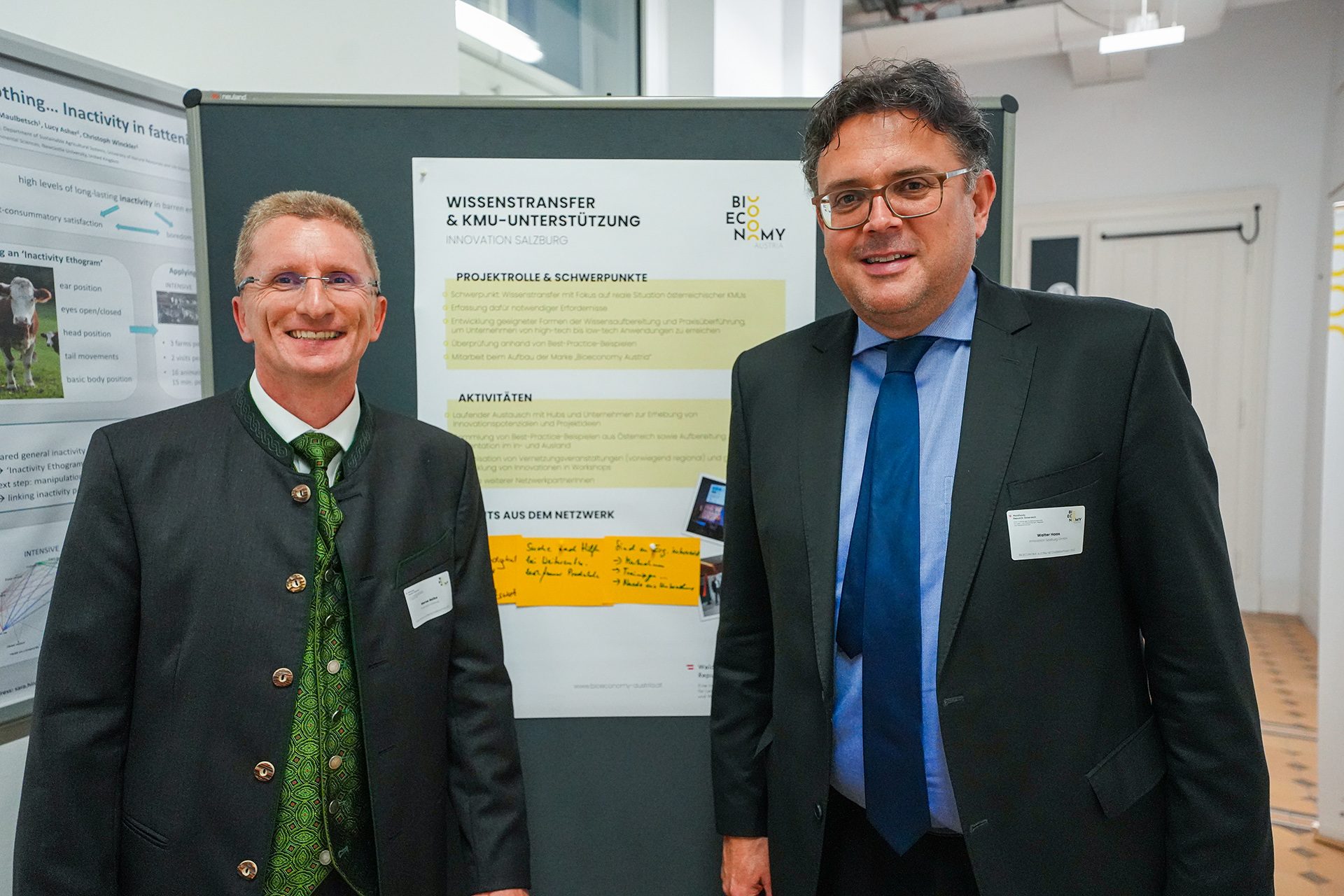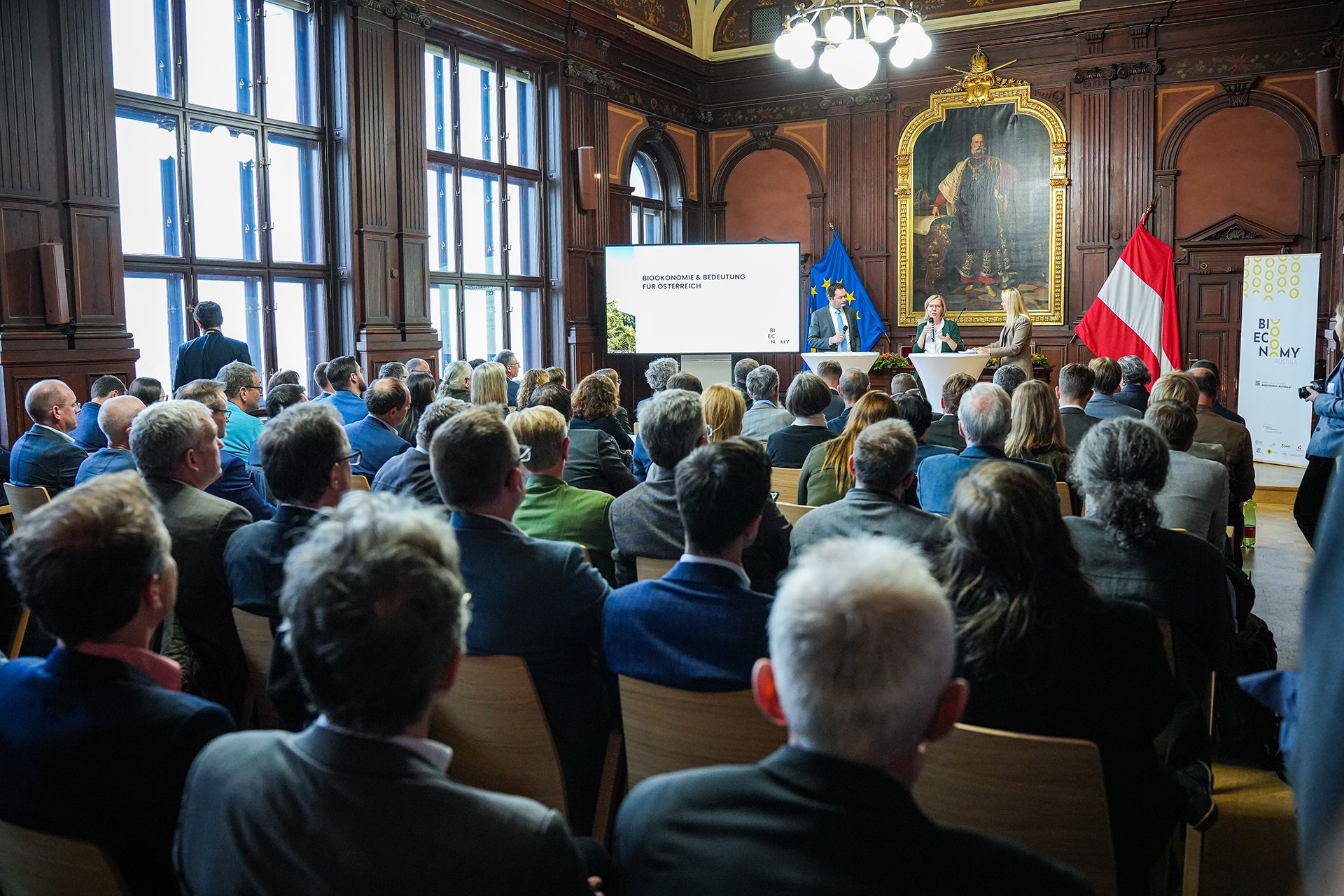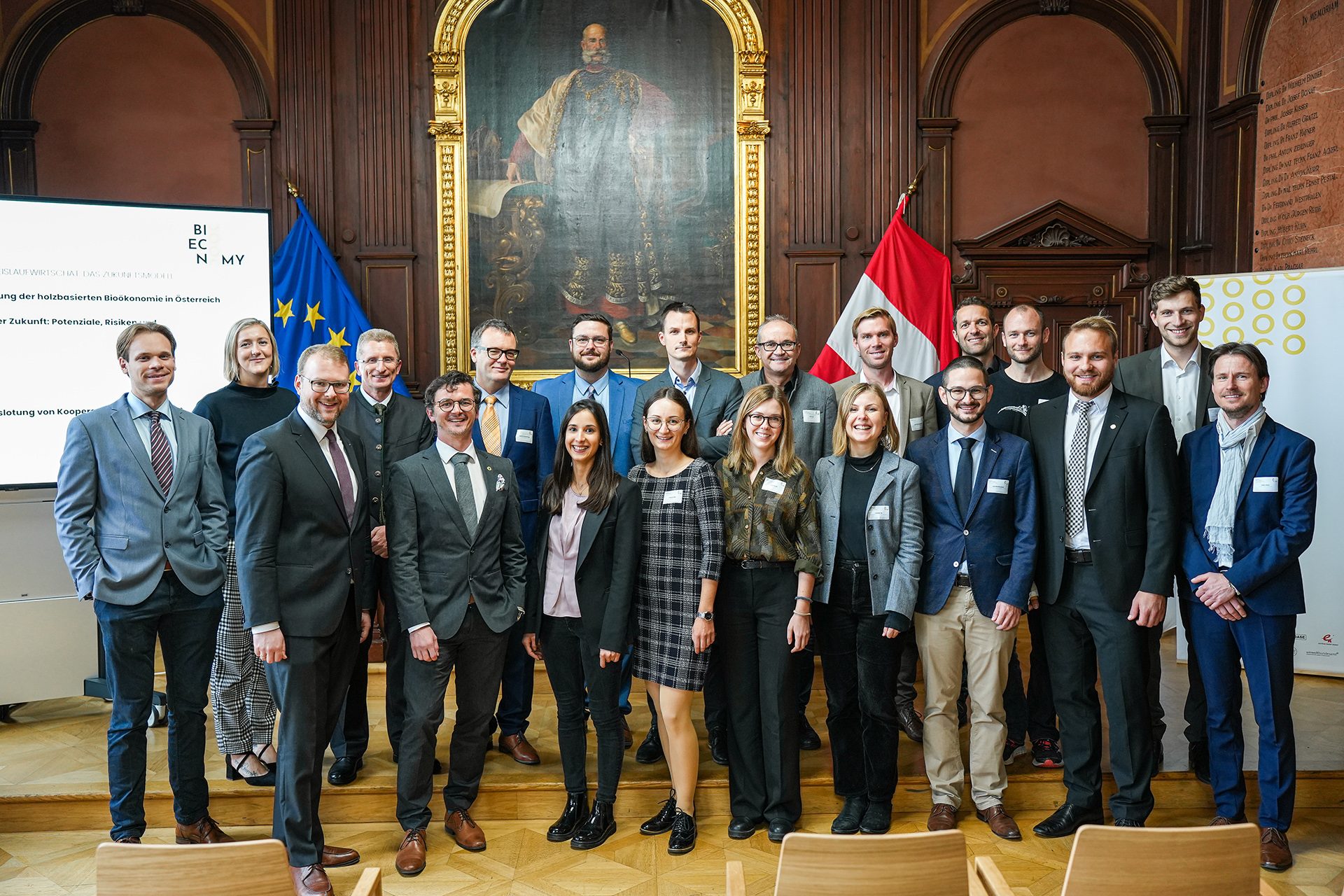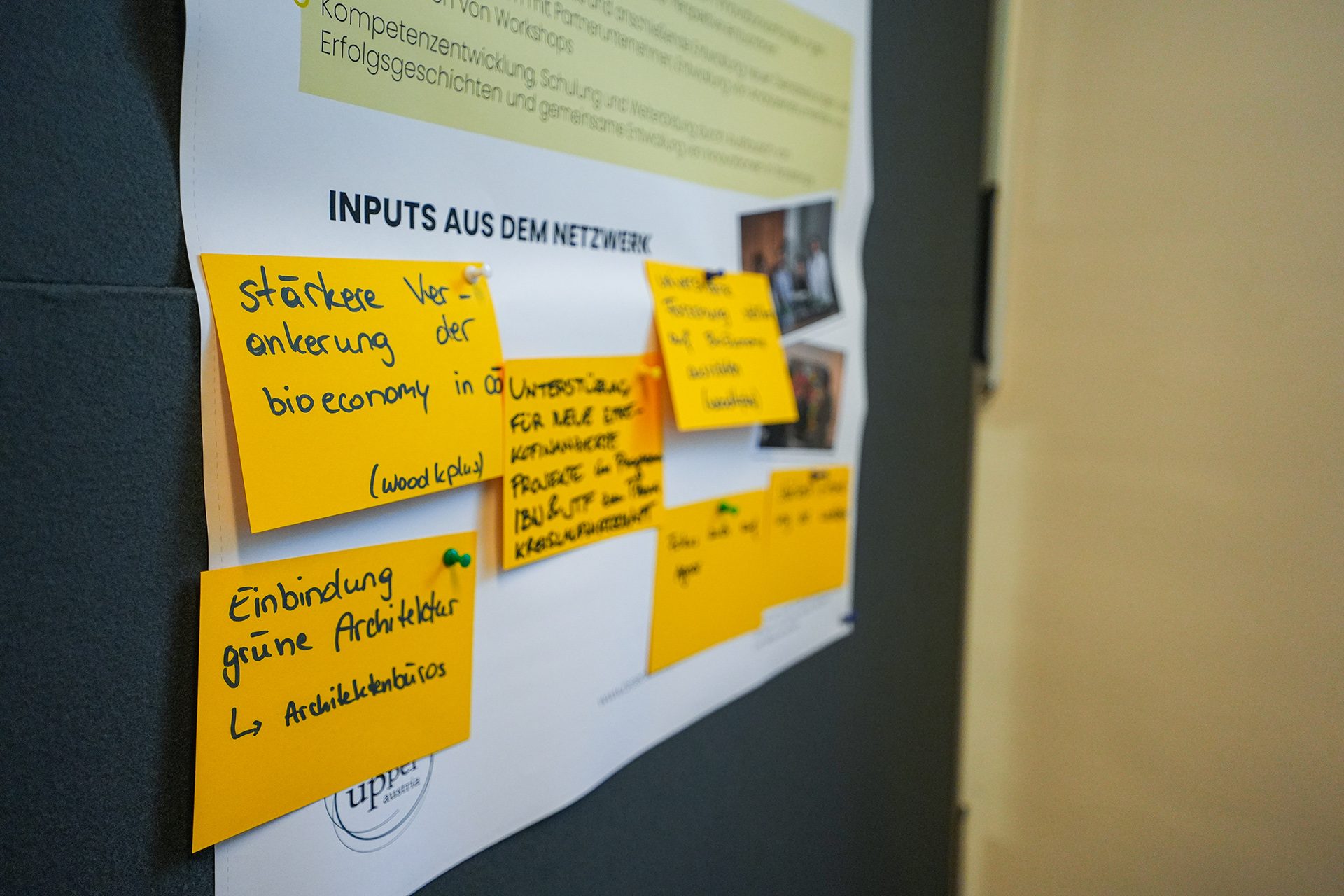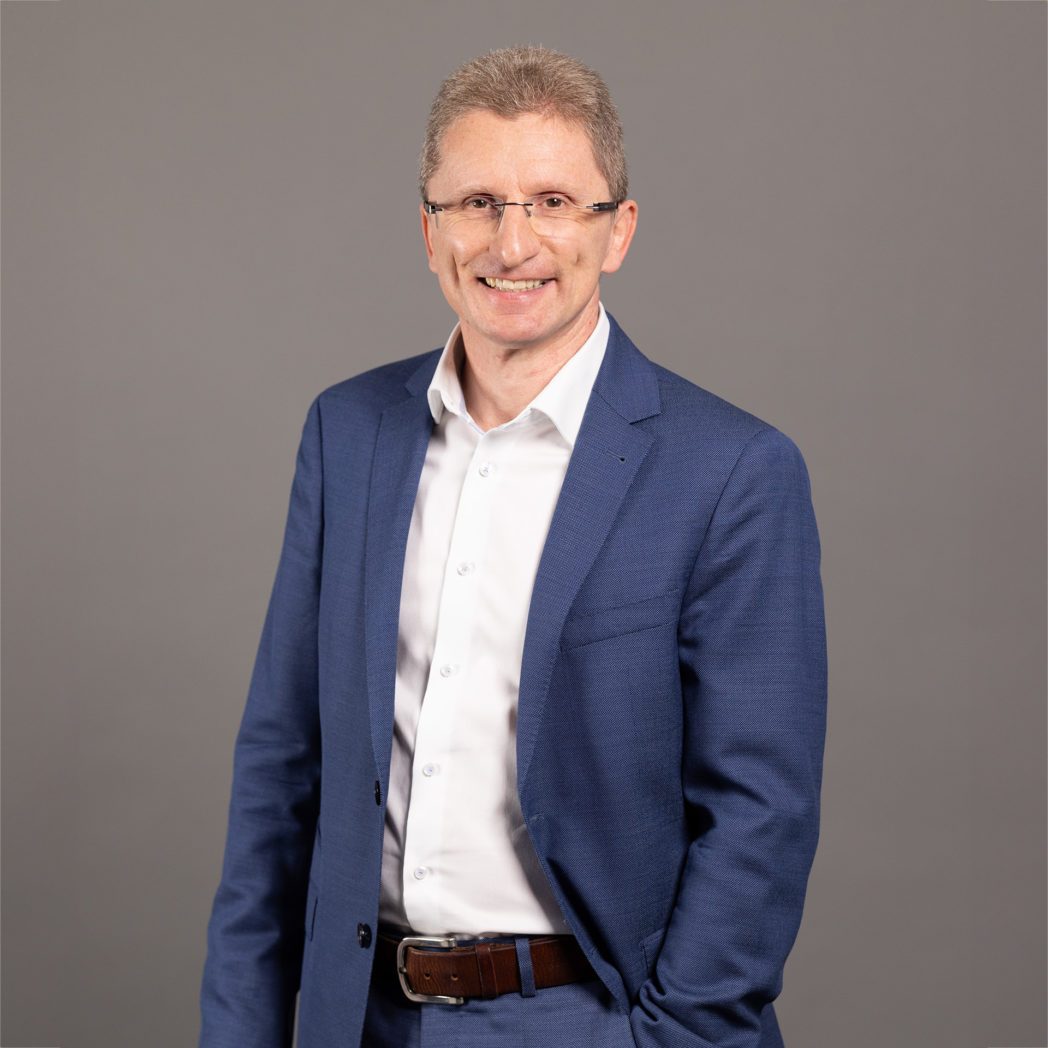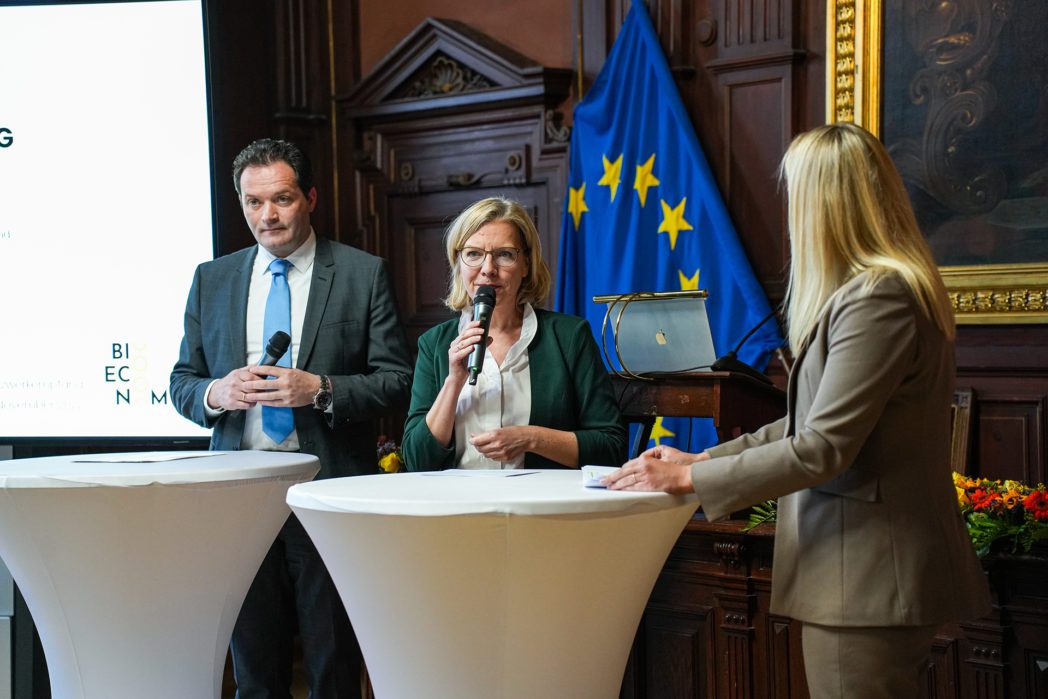
During a formal evening reception at the University of Natural Resources and Life Sciences in Vienna on Tuesday, November 8, 2022, Agriculture Minister Norbert Totschnig and Climate Minister Leonore Gewessler announced the successful establishment of the nationwide network for bioeconomy.
In the ten-member project consortium, the focus of Innovation Salzburg is on knowledge transfer with a particular focus on the real situation of Austrian small and medium-sized enterprises (SMEs). Five months after the start of the project, over 150 partners from regional clusters and platforms, business, research, politics, and society have already been recruited for “Bioeconomy Austria.” “Bioeconomy Austria” enables them to exchange information and know-how.
Along the entire value chain, the partners jointly seek ways to avoid waste and replace fossil resources with renewable alternatives. The network’s first focus is on the raw material wood.
The network partners emphasized the importance of “Bioeconomy Austria” during the formal reception:
From a research perspective, Boris Hultsch, CEO of the Wood K plus Competence Center, emphasized, “We see the Bioeconomy Austria network as a great opportunity to establish the bioeconomy as a leading theme for Austria and Europe in politics and society. To implement this, innovative solutions for new materials made from renewable resources such as wood and new efficient process technologies for businesses are needed. That is precisely the research expertise and mission of Wood K plus, which we contribute to the new bioeconomy network.”
Monika Kanzian of the Austrian Federal Forestry (ÖBf) added, “Wood grows back and is available in a relevant quantity and spatial proximity. That makes this raw material so important for the social change towards the bioeconomy. ÖBf makes an important contribution by providing around 1.5 million cubic meters of harvested wood each year. Bioeconomy Austria connects us with important partners along the entire value chain – this way, additional potentials in the field of bioeconomy can be tapped.”
“From the perspective of the wood industry, the bioeconomy offers a great opportunity to knowledgeably promote the production and use of renewable resources to provide products, processes, and services in all economic sectors as part of a sustainable economic system. Thus, it has the great potential to produce novel ecological solutions. To achieve this, a large network like Bioeconomy Austria is essential to promote discourse and mutual exchange,” summarized Dieter Lechner, Deputy CEO of the Association of the Austrian Wood Industry, the network’s benefits.
Networking of Federal State Clusters
A particular focus of “Bioeconomy Austria” is the networking of the regional federal state clusters with each other. They are also linked to activities of the federal government and the EU. For Salzburg, Innovation Salzburg is part of the network and, after identifying the needs and requirements of the economy (with a focus on SMEs), develops suitable forms of knowledge preparation and practical implementation to reach companies from high tech to low tech. “We see the bioeconomy and the national consensus on it as an opportunity to strengthen our economic location and our companies,” says Walter Haas, CEO of Innovation Salzburg (pictured on the right with Werner Balika, photo: Holzcluster Steiermark). On behalf of Atomic Austria GmbH, Helmut Holzer (Director Quality, Anticipation & Advanced Research) adds, “You have to look beyond the horizon and take advantage of the opportunity to exchange ideas with stakeholders from other industries. Only through collaboration can you solve the requirements of the future.”
In the future, the network will be expanded to include all renewable resources of the bioeconomy, from fields and water to biobased residual materials. By 2024, the growing and pre-competitive network will develop into an Austria-wide bioeconomy cluster. “Bioeconomy Austria” is a flagship project of the national bioeconomy strategy and is supported by the Austrian Forestry Fund.
Through the newly created cooperation platform, www.bioeconomy-austria.at, direct networking with all participating partners is possible. It is thus the gateway to the bioeconomy in Austria. The growing network is open to all interested organizations.
This might also interest you
6. March 2025
salz21: Necessary Steps for the Future
On March 5, 2025, salz21 | Home of Innovation once again provided a platform for future topics, innovations, and interdisciplinary exchange. More than 1,000 visitors took the opportunity to learn about current developments and discuss perspectives for tomorrow. Three topics were particularly dominant: climate protection, artificial intelligence, and a strong Europe.
25. September 2024
Green Deal: How Sustainable Business Development Can Look
The EU aims to create political and legal frameworks through the Green Deal to transform both the economy and society in a sustainable way. The Pinzgau-based company Design Composite demonstrates how this can be implemented.
29. July 2024
Pioneering Workshops and Inspiring Screenplays
For the first time, workshops were held in the lead-up to the Media Summit, addressing current topics in the film and media industry: the perennial issue of film funding, green filming with the best practice case study “Rickerl,” and women in film with the winners of the screenplay competition “Heroines in Series.” The workshops were well attended, with 120 participants.
8. March 2024
How do we shape our future?
Political and technological challenges, as well as solutions to questions about the world of tomorrow, were discussed at the well-attended Innovation and Technology Forum salz21 on March 6th at the Salzburg Exhibition Center. Let’s take a look back at the panels organized by Innovation Salzburg.
